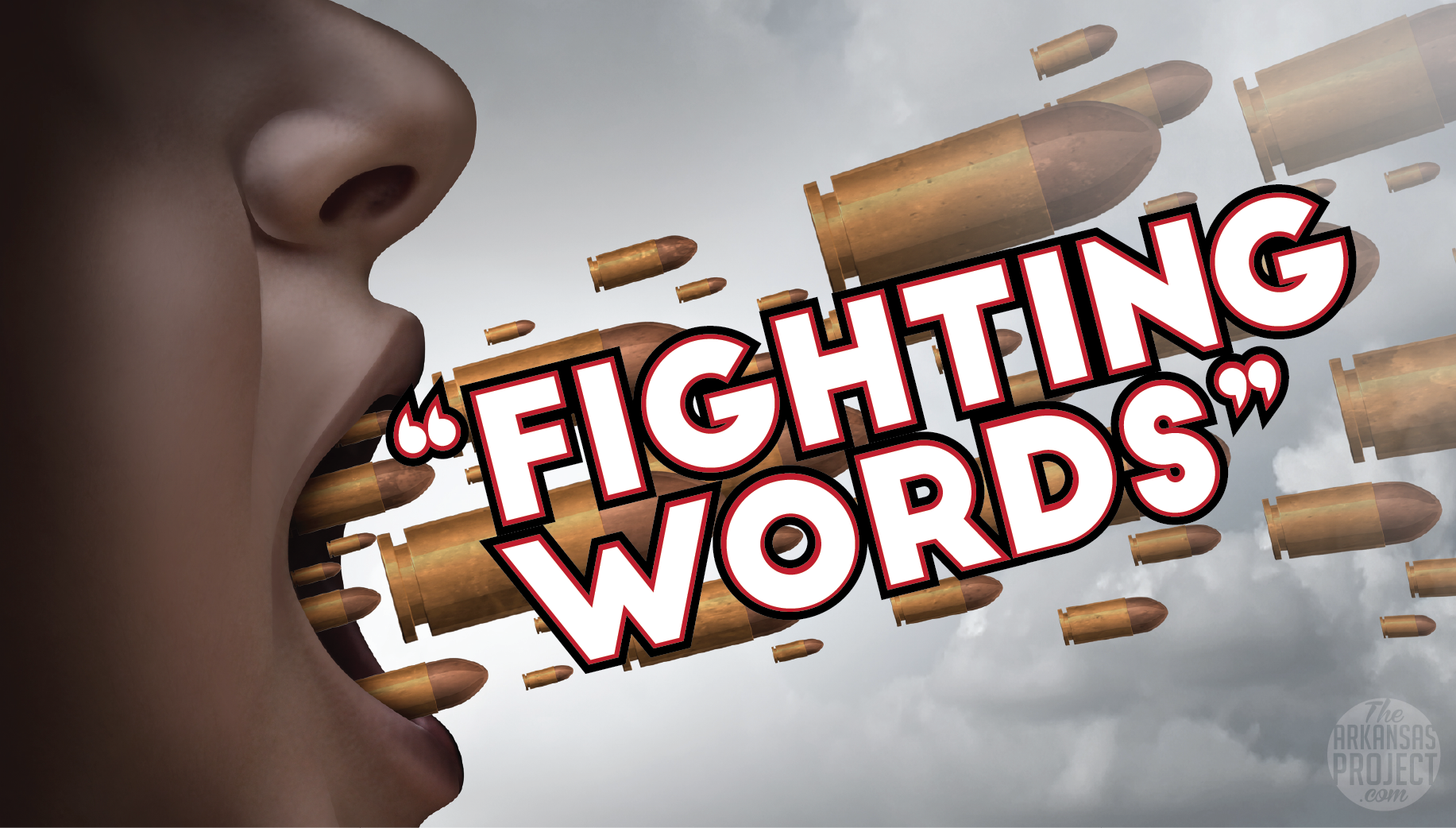You’re discussing something your partner feels strongly about. Suddenly you use that combination of words that makes his/her blood boil. You might have a legitimate point to make, but it’s no good now—the chance your partner will listen and take your point seriously has just dropped to zero. Not because your information is wrong, but because now your partner won’t even look at it. The problem in difficult relationships is not that “he leaves his socks everywhere,” or “she’s constantly complaining,” the problem is how partners manage socks and complaining—it’s what we say and do about it and especially how we say and do it that will often make or break the relationship.
Being more loving means putting things in ways that are less likely to upset your partner. This article starts with a discussion of a few of the words and phrases likely to rile us, along with some suggestions for less volatile replacements. After that, it suggests a way for you and your partner to keep such phrases from pulling you off base.
“Mend your speech a little, lest it may mar your fortunes.”
—William Shakespeare
“You”
As in: You are being so inconsiderate, or You’re making me so mad right now. Telling someone “You are doing this,” or “You are making me feel that” is an accusation, and nobody likes to feel accused; we usually get defensive. If you notice those things going on inside yourself—you’re feeling disregarded, or angry for example—then take responsibility for those feelings by saying “I’m not feeling very considered,” or “I’m feeling really frustrated right now.” Speaking about this a friend said, “My wife got that exactly right after we got married. She said, ‘When I go to bed after you and my side of the bed is not turned down, I start to think maybe you’re mad at me or that you don’t love me.’” My friend told me for the rest of their marriage he turned down her side of the bed first. “Not only that, but for a month I also left a little love note on her pillow.” He and I agreed that if she had tossed some “yous” in there, accusing him of being inconsiderate, it would not have gone so well.
“But”
As in, “That’s a good idea, but…” or “I appreciate it, but…” When we stick our “buts” into something positive we’ve just said, we tend to unsay it. “That’s a good idea, but…” means we don’t really think it’s a good idea. “I appreciate it, but…” means we don’t really appreciate it. It also emphasizes the negative part by putting it last. It’s weird that word order should matter so much, but it does. For example, it feels much better to most people when they hear, “You’re kind of lazy, but I love you,” than it does to hear “I love you, but you’re kind of lazy.” The first sentence leaves most people feeling loved, while the second leaves them feeling unloved and lazy. Instead of negating with a “but,” try augmenting with an “and.” Instead of “You’re a great partner, but you need to stand up to your mom more,” try, “You’re a great partner and I’d love to see you stand up to your mother on this.”
Dismissing words and phrases
As in: “That’s ridiculous” or “That’s B.S.” or “That’s the craziest thing I ever heard.” When someone uses one of these phrases I instantly know they are not only dismissing my idea without looking at any of it’s potential merits, I also feel like they are dismissing me. I suddenly feel insulted and want to defend my sensibility, credibility, or sanity. Instead of dismissing your partner’s idea when you find yourself disagreeing with it, work hard to look at the merits of it from his or her point of view. List them aloud, and explain why you think those merits are important to him/her. And before you give your concerns about it—if it’s important for you to do so—be careful not to stick that dreaded “but” into the sentence. Give your partner full credit for having a brain in this way, and he/she will much more likely hear your opinions about the subject.
“Why”
As in, “Why are you late?” or “Why didn’t you text me back?” You may simply want information, but asking a Why is usually not a good way to get it. When asked “why” we often feel defensive and try to justify ourselves. Instead of “why,” consider either looking for more information with a “what,” or making a neutral guess about things. For example, instead of “Why are you late?” simply ask, “What happened?” I mean, you don’t know. They may have been mugged or passed a kidney stone on the way home. Instead of “Why didn’t you text me back?” make a neutral guess like, “Did you get swamped after I texted you?”
“If you really loved me you would…”
“ …you would take me on a vacation. …let me get a dog. …have sex with me more often,” and on and on. Feeling unloved because your partner is not doing what you want is a “you problem,” not a “him/her” problem, and confusing that creates tension. If you are truly not getting the love you want, then that needs to be addressed. But it’s not going to get better by accusing him/her of being unloving when he/she doesn’t comply. Whenever you feel tempted to use this phrase, take it as a signal that you might benefit not only from (1) learning to more effectively get your love needs met, and (2) learning to feel more comfortable in a world (and a relationship) in which others do what they want to do, not what you want them to do.
“Why do you always have to…?” or “Why can’t you ever… ?”
As in “Why do yo always have to interrupt me?” or “Why can’t you ever pick your socks up?” Not only do these phrases use the dreaded “You” and the defensiveness-provoking “Why” already discussed, the use of absolutes like “always” and “never” are great ways to raise the hackles. When our partner uses these terms we immediately look for the one exception. Suddenly we’re not talking about her frustration at having been interrupted; now we’re talking about whether the statement is always completely true or not. One idea for replacing absolutes is to fess up to your own feelings at the moment using “I statements.” I statements also help you avoid making accusations. “I felt kind of dismissed and disrespected when you cut me off just now,” or even better, “I will feel much more respected in this conversation if I can finish my sentences” Regarding the socks on the floor example, how about turning a “but” to your advantage? “I know it doesn’t bother you much to have socks lying on the floor, but when you pick them up and they’re not there in the morning I know you’re thinking about me, and I feel loved.”
Unflattering comparisons
As in “Why can’t you be more like my mother and make me breakfast every day?” or “You know, all my previous boyfriends bought me dinner at least once a week.” What is our purpose for telling someone they don’t measure up to someone else in some respect or another? It’s insulting and shaming. When we do this we are actually saying, “Other people are like that. What’s the matter with you?” The solution? Take personal responsibility for your needs. Train yourself not to push your dissatisfaction onto your partner. The reason you are unhappy about something in your relationship is not because your partner is different from someone else. Once again, you yourself are responsible for getting your needs met in your relationship. Your partner is there to help you, but it’s your job. If you haven’t figured out how, get creative. Get some ideas from books, professionals, brainstorm, even ask your partner for help solving your problem. But allow it to be your problem to solve and find a solution that brings you closer together—not insults that push you apart.
Blaming
Saying “This is your fault” or worse, “This is all your fault” is obvious blaming, but more subtle blame can be behind, “We need to talk.” If it feels like blaming, the assumption may be that you are really wanting to say, “We need to talk because you’re doing something that is bothering me. Sit down here and let me spell out how flawed you are.” You may have no such intention, but if you have a habit of unintentionally blaming your partner for your unhappiness, then (1) without intending to you may be subtly conveying that message, and (2) your partner is probably sensitized to it and expecting the blame even when it isn’t there. As with some of the other fighting words above, blaming comes from the belief that your happiness depends on the people around you doing what you want them to do. It doesn’t. It depends on you choosing to do things that help you be happy—including choosing to interact happily with positive and loving people.
What to do if you notice yourself using one or more of these “fighting words.”
Make a commitment to stop using words and phrases that just cause conflict.
Share your commitment with your partner and others.
Discuss the specific words and phrases you want to stop using. Accept your partner’s ideas too.
Bite your tongue before the words are said.
Stop yourself at any point in saying them.
Refuse to make excuses for saying harmful things—if it hurts the relationship, it’s still wrong: even if your partner did something wrong first.
Apologize immediately and back off your point—you’ll have to make it at another time because you’ve already spoiled the moment
Recommit to yourself and your partner to stop the harmful speech.
What to do when your partner uses “fighting words.”
Seek a commitment from your partner to stop using words and phrases that cause conflict
Share with him/her the above steps
Follow the above steps yourself if you or your partner feel you sometimes use “fighting words.”
Say, “When you use that kind of phrase my emotions get riled up and I can’t talk reasonably about the subject anymore. Let’s talk about something else for a while and then we can come back to this.”
Stay present and connected to your partner, just talk about something nice or neutral for a while.
Offer sincere apologies if you were even a little harsh or escalated.
Accept your partner’s apologies and recommitment to stopping fighting words.
For more ideas about reducing arguments, Read this>>




